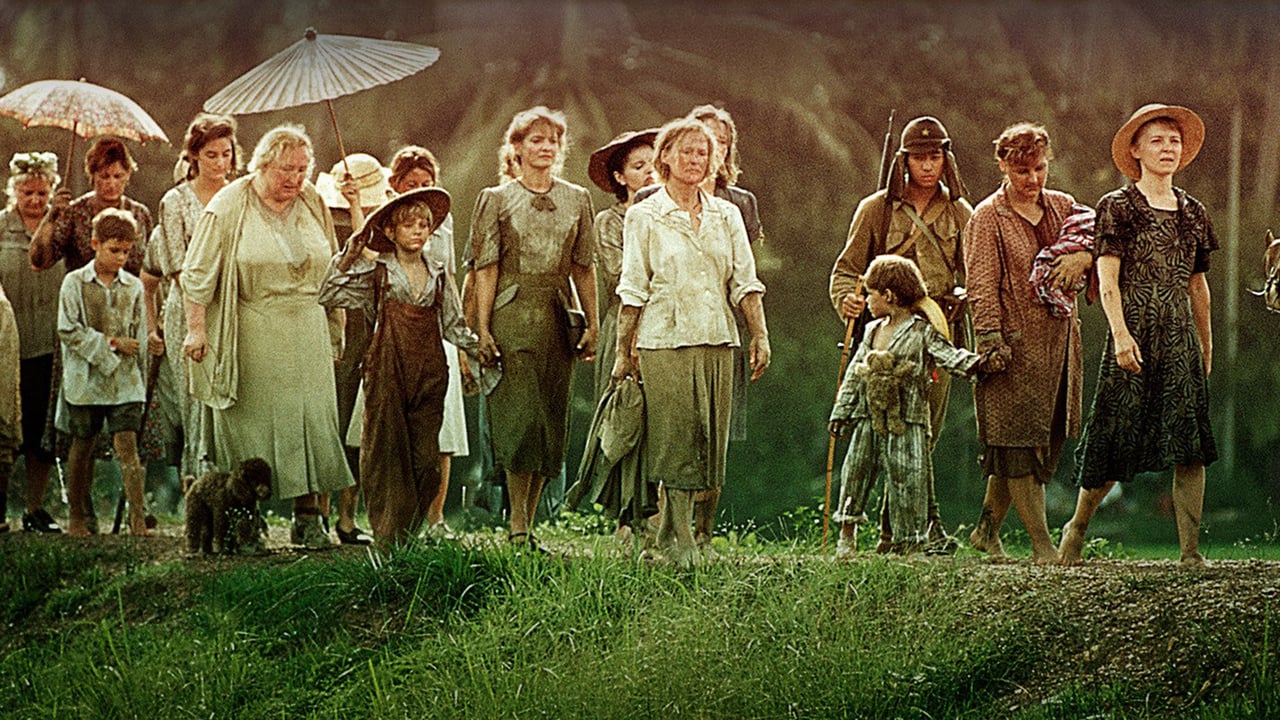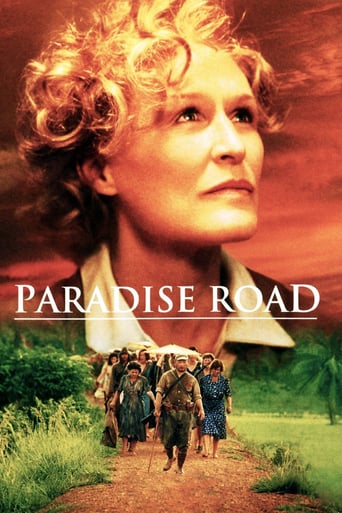Holstra
Boring, long, and too preachy.
Ceticultsot
Beautiful, moving film.
Curapedi
I cannot think of one single thing that I would change about this film. The acting is incomparable, the directing deft, and the writing poignantly brilliant.
Allison Davies
The film never slows down or bores, plunging from one harrowing sequence to the next.
SnoopyStyle
It's 1942 Singapore. Adrienne Pargiter (Glenn Close) joins the women and children evacuating from the approaching Japanese only to have their ship sunk. She and others swim ashore to Sumatra and imprisoned in an internment camp. As they face mounting brutal treatment, they decide to organize a choir.There are a lot of great actresses here; Frances McDormand, Pauline Collins, Cate Blanchett, Julianna Margulies plus many many others. The different characters can get to be too numerous. However the main characters played by the better known actresses remain center stage. Ten years before, the stories would be shocking and ground breaking. After Schindler's List, that kind of inhumanity is no longer as shocking and it seemed that this movie held back the most shocking visuals. For example, when the woman gets burnt alive, we are barely allowed to see anything. The beatings were all stage crafted. They could have stage a more brutal vision.
edwagreen
Interesting but uneven tale of a variety of women captured by the British while fleeing Singapore during World War 11. They are taken to Sumatra and literally brutalized for the duration of th war.Glenn Close leads an impressive cast.The film becomes uneven when we see outrageous Japanese brutality followed by a scene of toleration as the women perform. Certainly, these barbaric Japanese lacked any form of compassion. By the next scene, the brutality is in full force. The lame excuse given by the commander of their internment camp at the end of the war is certainly nothing with nothing.It was interesting to see that a few of the women became prostitutes in a brothel for food and to escape the brutality.Their forming of a choir was certainly their attempt at Singing for Time. (Remember the television holocaust film-Playing for Time?)
btm1
Paradise Road is based on a true World War II story of a boat load of women and children fleeing the imminent Japanese occupation of the then British colony. The boat is sunk and survivors made it to the shore of an island that was already occupied by the Japanese military, where they are herded into a brutal prison camp. Brutal World War II prison camps have been portrayed before, but this story is unique because to keep their spirits up the women manage to organize an a capella vocal group that performs classical music for the prisoners. The camp officers and guards join the audience.I disagree with critic Roger Ebert who found the story line to be less dramatic than it could have been. I found the story gripping from the opening scene of a British high society ball in Singapore in which the British elite expressed their prejudices about Japanese and their erroneous belief that the Japanese army will be no match for the British military. It lost interest only after the war's end was announced. The film ended at that point without going into what the camp was like during the 2 weeks after the Japanese surrendered but before the victors reached the camp.All the cast performances were very strong. Many of the cast had important parts and all gave very strong credible performances. Glen Close was excellent in what I would call the lead role, the concert organizer and conductor.Although the action takes place in 1942-1945, the film was made in 1997. The prejudices that existed in the 1942-45 period are included in the film, but the 1997 sensibilities are expressed in making the Japanese military roles multidimensional, rather than pure evil. The only sadist was the Japanese Captain who was a member of the Japanese equivalent of Nazi Germany's Gestapo.
Dan1863Sickles
One of the most bittersweet moments in film is when a vehicle meant to show off a fading but well established star becomes an unintentional tribute to a scorching young talent who arrives out of nowhere. PARADISE ROAD was meant to be a vehicle for Glenn Close, but when you watch it today it's only Cate Blanchett who really shines. Her character is meant to be quite minor -- the Australian farm girl who is punished by the Japanese for speaking out. The problem is, the camera catches all this beauty and strength and wit and resourcefulness in a girl who is only meant to be briefly interesting. Cate stops the film dead every time she is on the screen! The film is okay, but it would have been more interesting if one of the Japanese officers could have seduced Cate Blanchett and made her his mistress. Instead of having a punishment scene when Cate makes fun of the Japanese flag, I pictured her having to apologize personally to the commander, perhaps over a cup of tea. The thrill of having a real cup of tea after months of misery would be great to see on the face of Cate Blanchett. And of course her face could show suspicion and doubt and pleasure all at the same time -- Cate Blanchett is very talented. But her face would be showing her weakness for the pleasures she's missed, and soon she would be taking hot baths and wearing silk kimonos and slinking around the commander's hut like a real Australian geisha! That would be a lot more exciting than watching Glenn Close make like Mary Poppins for two hours. Or listening to Frances McDormand do a silly "German" accent. She sounds like Roseanne Barr doing Bela Lugosi! PARADISE ROAD is a so-so movie over all, but Cate Blanchett is thrilling even in her first film role.

